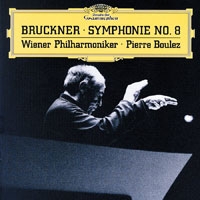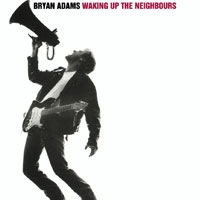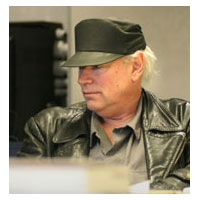SXSW 2007 Panel: Why Does Today's Music Sound Like Shit? Page 2
|
|
| Sandy Pearlman |
For most of the 20th century, there was a continuous succession of improvements in sound, which actually made music more engaging. But by the end of the century, we'd taken a real radical turn away from all that - beginning a process, which is now pretty much universal, of merely distributing music as artifacts. And these artifacts are sonically impoverished. I know that we are stuck with the digital-distribution matrix. So, assuming that, we at McGill are thinking outside of the speaker cabinet for new ways to transport music that preserves a lot more of its inner qualities. Music is so much about ineffabilities - things that are very hard to nail down - and ineffabilities are the things that digital preserves least well.
 In a class I taught at McGill called Bruckner and Heavy Metal: From Chord Power to Power Chord, we played a series of recordings of Bruckner's Eighth Symphony, starting with one recorded in 1944 in Berlin on a first-generation, built-in-1941 AEG tape recorder. There's a lot of distortion on this recording, but it also actually sounds amazing. We ended with conductor Pierre Boulez's 2000 digital recording, made in Bruckner's home church in Austria. And this is Boulez, who knows his stuff - who should know everything about how to get the best digital recording he can. And the universal opinion in the class was that the 1944 recording sounded incalculably better than the 2000 Deutsche Grammophon recording made by the master - for whom I have unlimited respect. But he was undone by the technology.
In a class I taught at McGill called Bruckner and Heavy Metal: From Chord Power to Power Chord, we played a series of recordings of Bruckner's Eighth Symphony, starting with one recorded in 1944 in Berlin on a first-generation, built-in-1941 AEG tape recorder. There's a lot of distortion on this recording, but it also actually sounds amazing. We ended with conductor Pierre Boulez's 2000 digital recording, made in Bruckner's home church in Austria. And this is Boulez, who knows his stuff - who should know everything about how to get the best digital recording he can. And the universal opinion in the class was that the 1944 recording sounded incalculably better than the 2000 Deutsche Grammophon recording made by the master - for whom I have unlimited respect. But he was undone by the technology.
ON VOCALS
 Ludwig: The hardest problem for me to deal with today is the vocal. Young engineers just don't pay enough attention to the vocal - and that, of course, is the record.... One of the world's great engineers is Bob Clearmountain, and he's a very fast engineer. Usually when he hears a multitrack tape that someone has given him to mix, within 40 minutes he's got a mix that you'd die for, and he spends the rest of the day just doing that last 10%. But when he was mixing Bryan Adams's Waking Up the Neighbours with Bob Lange [producer Robert John "Mutt" Lange] at Battery Studios in England, I called them up and Bob [Clearmountain] answered the phone - and I hardly recognized his voice. I said, "Whatcha been doing?" He said, "I've been doing vocal rides for two weeks." That will give you some idea of how important Mutt Lange thinks the vocal is on a record.
Ludwig: The hardest problem for me to deal with today is the vocal. Young engineers just don't pay enough attention to the vocal - and that, of course, is the record.... One of the world's great engineers is Bob Clearmountain, and he's a very fast engineer. Usually when he hears a multitrack tape that someone has given him to mix, within 40 minutes he's got a mix that you'd die for, and he spends the rest of the day just doing that last 10%. But when he was mixing Bryan Adams's Waking Up the Neighbours with Bob Lange [producer Robert John "Mutt" Lange] at Battery Studios in England, I called them up and Bob [Clearmountain] answered the phone - and I hardly recognized his voice. I said, "Whatcha been doing?" He said, "I've been doing vocal rides for two weeks." That will give you some idea of how important Mutt Lange thinks the vocal is on a record.
- Log in or register to post comments




































































